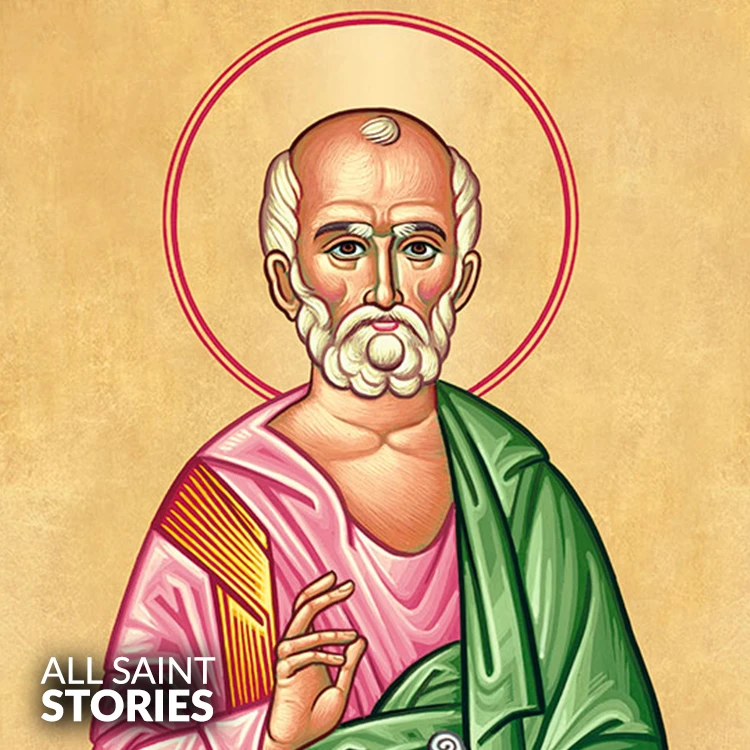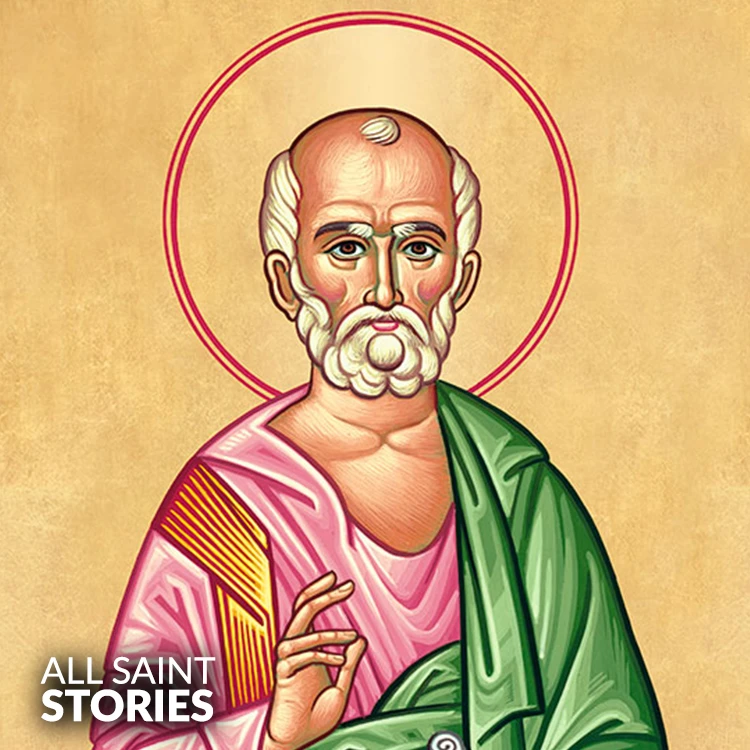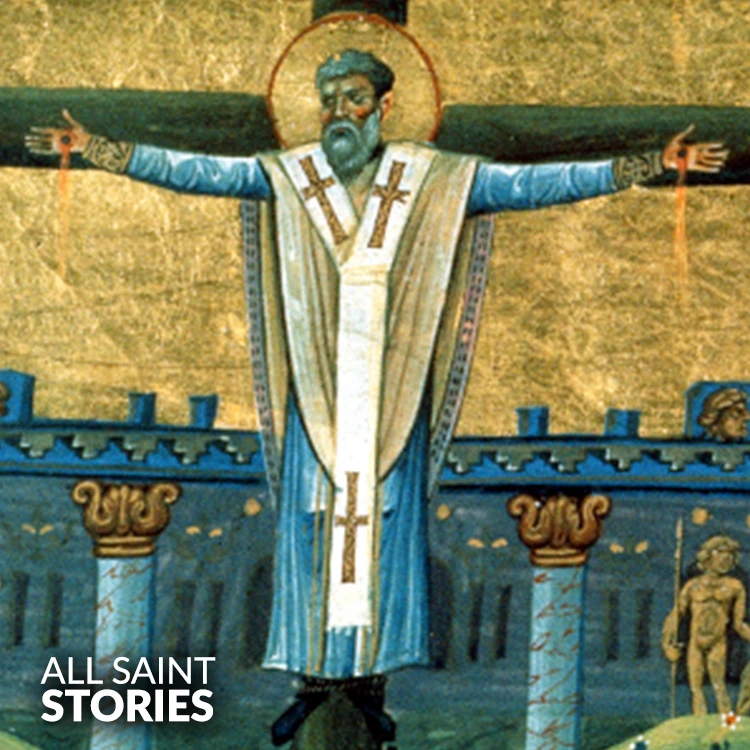"O Holy Saint Simon of Jerusalem, faithful servant of Christ, intercede for us before the Lord, that we may grow in faith and devotion, and live in accordance with His will. Guide us with your wisdom and strength, and protect us from all harm. Through Christ our Lord. Amen."
ST. SIMEON OF JERUSALEM
ST. SIMEON OF JERUSALEM

Saint Simeon of Jerusalem was the second bishop of Jerusalem, following Saint James the Just. He is remembered for his leadership during a time of persecution and his martyrdom around 107 AD. As a relative of Jesus, Simeon played a key role in strengthening the early Christian community in Jerusalem, ensuring its survival despite Roman oppression. He is venerated for his faith and devotion to Christ.
Saint Simeon of Jerusalem was a prominent figure in the early Christian Church, serving as the second bishop of Jerusalem. He is traditionally believed to be a relative of Jesus, often described as one of His close kin, possibly a cousin or son of a sibling of Mary, Jesus' mother. This connection made him a significant figure within the early Christian community.
After the death of Saint James the Just, the first bishop of Jerusalem, Simeon assumed the position of bishop and became the leader of the Christian community in the city. Jerusalem, at this time, was a hotbed of religious conflict and political instability, particularly after the destruction of the city in 70 AD by the Romans. Despite these challenges, Simeon worked to preserve and nurture the Christian faith, guiding his community through perilous times.
The Christian community in Jerusalem faced persecution not only from the Roman authorities but also from various Jewish groups who opposed the rise of Christianity. Simeon’s leadership was crucial in maintaining unity among the followers of Christ during this period of hardship. His deep faith and commitment to his role as bishop helped to keep the Christian community alive amidst growing opposition.
Simeon’s martyrdom occurred in the early 2nd century, around the year 107 AD, though some sources suggest a slightly later date. He was arrested and, according to tradition, crucified at the age of 120. His death took place during the reign of Emperor Trajan, who was notorious for his anti-Christian policies. Simeon’s martyrdom is a testament to his unwavering commitment to the Christian faith, and his death marked the end of an era of early Christian leadership in Jerusalem.
The exact details of Simeon’s burial are not clearly recorded, but it is generally believed that he was laid to rest in Jerusalem. Over time, Saint Simeon became venerated as a martyr, and his feast day is celebrated by various Christian denominations on February 18. His legacy as one of the key figures of the early Church in Jerusalem continues to be honored, and he is remembered for his leadership, faithfulness, and dedication to the survival of Christianity in its nascent stages.
Though the specifics of his canonization are unclear, Simeon’s position as one of the earliest Christian martyrs and his role in the history of the Church ensure that he remains an important figure in Christian tradition. He is regarded as a saint in both the Eastern Orthodox Church and the Roman Catholic Church.
Video Not Found
The information on this website is compiled from various trusted sources. While we aim for accuracy, some details may be incomplete or contain discrepancies.
If you notice any errors or have additional information about this saint, please use the form on the left to share your suggestions. Your input helps us improve and maintain reliable content for everyone.
All submissions are reviewed carefully, and your personal details will remain confidential. Thank you for contributing to the accuracy and value of this resource.
Credits & Acknowledgments
- Anudina Visudhar (Malayalam) – Life of Saints for Everyday
by Msgr. Thomas Moothedan, M.A., D.D. - Saint Companions for Each Day
by A. J. M. Mausolfe & J. K. Mausolfe - US Catholic (Faith in Real Life) – Informational articles
- Wikipedia – General reference content and images
- Anastpaul.com – Saint images and reflections
- Pravachaka Sabdam (Malayalam) – Saint-related content and insights
We sincerely thank these authors and platforms for their valuable contributions. If we have unintentionally missed any attribution, please notify us, and we will make the correction promptly.
If you have any suggestion about ST. SIMEON OF JERUSALEM
Your suggestion will help improve the information about this saint. Your details will not be disclosed anywhere.
© 2026 Copyright @ www.allsaintstories.com






 English
English
 Italian
Italian
 French
French
 Spanish
Spanish
 Malayalam
Malayalam
 Russian
Russian
 Korean
Korean
 Sinhala
Sinhala
 Japanese
Japanese
 Arabic
Arabic
 Portuguese
Portuguese
 Bantu
Bantu
 Greek
Greek
 German
German
 Dutch
Dutch
 Filipino
Filipino